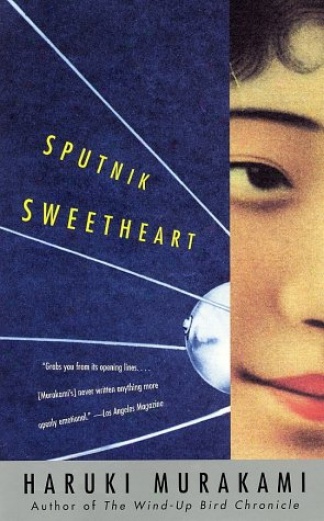Haruki Murakami’s Sputnik Sweetheart

Murakami’s Sputnik Sweetheart is an easy to follow novel, at least at the beginning. A nameless twenty-to-thirty year old man (known as ‘K’) is in love with a girl named Sumire. Sumire is an aspiring author who eventually finds work for this mysterious businesswoman (or something like that) who is 17 years her senior. They fall in love and then fly to Greece together on business/vacation. Then, one day, Sumire goes missing from the little island, never to be seen again.
What happens from there, I leave to you. But I will comment that I write this only because I saw a video review for this book, where the reviewer lamented that the book ends the way it does. Isn’t that the point? That the ending is left ambiguous? If you’re wondering, K is ruined by Sumire’s disappearance (very predictably so), but that’s not the point. Strange things happen, of course, as in any Murakami book. But this video reviewer lamented the lack of clear ending or even direction, characteristic of Murakami’s postmodern style, and also lamented that her American upbringing was what kept her from understanding the way people can break and never recover.
And break K does. The ending, like all Murakami books, has some (and I mean some) concreteness but lacks any true ending that you might want. We’re all left wondering what really happened, and you can read anything you want into the ending. I’ve had lengthy discussions about it, and without giving much away, neither me nor my friends can agree on what really happened (assuming, of course, anything happened at all).
I remember reading Crime & Punishment, and was almost disgusted at how Dostoevsky made sure that the reader knew that everything would resolve itself. Life isn’t like that. And while people don’t just disappear off the face of the earth for no reason, at least there is no stereotypical ‘happy ending’ in Sputnik Sweetheart. People break, life goes on, and while I can’t say I understand it myself, it’d be no good if all our books assured us of the stereotypical fairytale ending. We have to find that for ourselves.
